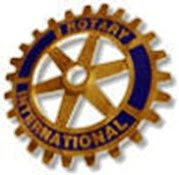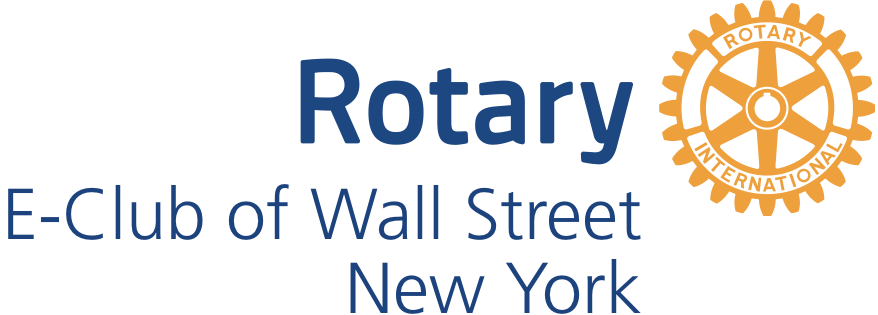Click to watch a 5 minute video of Bill Gates regarding Rotary’s Effectiveness. January 2009
http://www.youtube.com/watch?v=tH1vPTVGHOk
Surprising, while there are more than 32,000 Rotary chapters around the world, and five chapters in Manhattan, there is currently no Rotary Club of Wall Street. With this in mind, we are inviting civic and globally-minded Wall Street Professionals to join a seasoned group of like-minded business owners and professionals that know the benefits and effectiveness of the Rotary model to establish a chapter here on the “Street”.
Information about Rotary:
Established in 1905, Rotary International provides an organized and enjoyable way for civic-minded executives and professionals to contribute their skills to the progress of New York and to the needy areas of the world because you and your company will become part of the 1.2 million worldwide network, and warmly welcomed at the 33,000 clubs in more that 172 countries. You will also establish life-long friendships with other like-minded men and women in a cross-section of industries and professions.
In concert with a number of interesting and enjoyable fund raisers, our club will provided support to needy local and international projects -The Heart and Soul of our Club. Part of our club’s service projects include providing technical and financial assistance, as well as providing helping-hands and recognition to a number of worthy New York organizations.
Guest Speaker Program
At nearly every weekly meeting, we invite an informative and recognized industry leader to meet with club members. They provide us with first-hand insight on a wide-array of relevant topics such as politics, economics, finance, poverty-eradication, health, media, art, music, history, film, etc. The presentation and Q&A period normally lasts about 30 minutes, but our guest(s) usually remain after the lunch for an informal, extended conversation.
Where We Meet – The Downtown Association 5:30 to 6:30 PM for cocktails.
One of the wise policies of Rotary Clubs is not to own any real estate for our weekly meetings. Rotarians prefer to spend their time and energy on service projects and fellowship with other like-minded individuals, rather than expending resources on the costly responsibility of maintaining and managing a building. It is the tradition of Rotarians to simply meet at a comfortable and convenient restaurant or hotel to enjoy our weekly meetings.
Flagship Program
Rotary’s Polio-Plus Program that was started in 1985 is credited with the near-eradication of polio from our planet. We are very proud of the recent Wall Street Journal Editorial. The NY Times had a similar editorial but did not recommend us for the “Noble Peace Prize”.
It should be noted that our Polio-Plus program is only the tip of the iceberg. Tens of thousands of Club to Club poverty-eradication projects are completed every year. Most of these projects are not registered with any central agency or even with Rotary International. Therefore, there is no centralized annual accounting of these projects, but it is in the tens, if not hundreds of millions of dollars. Visit any developing country and it would be very difficult to find a region where a Rotary Club from an economically developed country has not built a school house, medical clinic, or ball field.
Rotary and the United Nations
What is Rotary International?
Rotary International is a worldwide organization of business and professional leaders that provides humanitarian service, encourages high ethical standards in all vocations, and helps build goodwill and peace in the world. Approximately 1.2 million Rotarians belong to more than 31,000 Rotary clubs located in 167 countries.
1905 First Rotary club organized in Chicago, Illinois, USA1905
Second club formed in San Francisco, .
Rotary Club of New York organized in 1909,
First Rotary convention held in Chicago1912.
The Rotary Club of Winnipeg, Manitoba, Canada, becomes the first club outside the United States to be officially chartered. (The club was formed in 1910.)
1917 Endowment fund, forerunner of The Rotary Foundation, established
1932 Four-Way Test formulated by Chicago Rotarian Herbert J. Taylor
1945 Forty-nine Rotarians help draft United Nations Charter in San Francisco
1947 Rotary founder Paul Harris dies;
1947 First 18 Rotary Foundation scholarships granted
1962 First Interact club formed in Melbourne, Florida, USA
1965 Rotary Foundation launches Matching Grants and Group Study Exchange programs
1978 RI’s largest convention, with 39,834 registrants, held in Tokyo
1985 Rotary announces PolioPlus program to immunize all the children of the world against polio
1989 Council on Legislation opens Rotary membership to women worldwide
1989 Rotary clubs chartered in Budapest, Hungary, and Warsaw, Poland, for first time in almost 50 years
1990 Rotary Club of Moscow chartered first club in Soviet Union
1990-91Preserve Planet Earth program inspires some 2,000 Rotary-sponsored environmental projects1994Western Hemisphere declared polio-free
1999 Rotary Centers for International Studies in Peace and Conflict Resolution established
2000 Western Pacific declared polio-free 2002 Europe declared polio-free; first class of 70 Rotary Peace Scholars begin study
2003 Rotarians raise more than US$118 million to support the final stages of polio eradication
